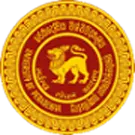-
Q1: What are the most common career destinations for Physics special graduates?
Soon after graduation, Physics graduates overwhelmingly (~100%) get selected to Ph.D. programmes in reputed international universities (R1 in Carnegie Classification). Later in life, most graduates secure positions as academics in globally reputed universities and research institutes, as data analytics, and work in semiconductor industry, electrical auto mobile industry, etc.
-
Q2: Being an A/L biology stream student, can I follow and succeed in Physics special/honours degree programme?
Yes. There are many success stories, including being top in the batch and getting selected for the Physics academic staff.
-
Q3: Do I have to follow three subject areas both in 1000 and 2000 levels to be selected for B.Sc. Honours in Physics Study programme?
For 1000 L you should follow three subjects including Physics.
For 2000 L you should follow a minimum of two subjects including Physics.
-
Q4: Is it advantageous in following optional Physics courses for the selection of B.Sc. Special in Physics?
Yes, but the primary selection criteria for the selection of Physics special is based on the Physics compulsory GPA.
-
Q5: What are the opportunities for serious undergraduate researches?
Students have options to propose and select projects from a wide range of fields spanning theoretical projects, comercializable projects to multidisciplinary collaborative researches. All Physics final year research students are mentored by qualified and experienced Physicists and the outcomes of the research projects are ended up in publications as journal articles or proceedings.
